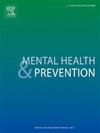自杀知识的变化和询问自杀问题的意愿:为支持原住民的人员提供 "社区联系员 "培训
IF 2.4
Q2 Medicine
引用次数: 0
摘要
目标门卫培训计划在预防自杀方面得到广泛应用,并取得了良好效果。然而,研究发现,在土著社区开展这些项目时,效果可能不尽相同,甚至无效。本研究是对基于标准化 "提问、劝说和转介"(QPR)方法的守门人项目进行的可行性试验,该方法根据澳大利亚新南威尔士州肖尔黑文地区当地原住民社区的文化需求进行了调整。该研究旨在确定:1)在完成守门人计划的过程中,自杀知识和求助意向是否会增加;2)不同教育背景的参与者在自杀知识和求助意向方面是否有相似的结果;3)原住民和非原住民是否有相似的结果。培训前和培训后的问卷调查评估了参与者的自杀素养是否有所提高,以及是否有意帮助其他有自杀风险的人。结果虽然测试前的自杀素养和帮助意向得分较高,但从测试前到测试后的得分都有显著提高。总之,本研究强调,提供适应不同文化背景的守门人培训与提高受训者的自杀素养和询问自杀问题的意愿有关。本文章由计算机程序翻译,如有差异,请以英文原文为准。
Changes in suicide literacy and intentions to ask about suicide: “Community Linker” training for those supporting Aboriginal people
Objective
Gatekeeper training programs are widely used with promising results for suicide prevention. However, studies have found that when delivered to Indigenous communities, outcomes can be variable or ineffective. This study is a feasibility trial of a gatekeeper program based on the standardised ‘Question, Persuade and Refer’ (QPR) approach, which was adapted to the cultural needs of local Aboriginal communities in the Shoalhaven region of New South Wales, Australia. The study aims to identify whether 1) knowledge of suicide and intentions to help increase over the course of completing the gatekeeper program; 2) participants of different educational backgrounds have similar outcomes in suicide literacy and intentions to help; and 3) Aboriginal people and non-Aboriginal people have similar outcomes.
Methods
One hundred individuals participated in the research, of which 50% identified as an Aboriginal person. Pre- and post-training questionnaires assessed whether participants experienced an increase in suicide literacy and intentions to support others at risk of suicide.
Results
Although pre-test scores for suicide literacy and intentions to help were high, these increased significantly from pre- to post-test. Those with no prior gatekeeper training showed larger changes in both suicide literacy and intentions to ask about suicide compared to those with prior training.
Conclusion
Overall, this study highlights that delivery of culturally adapted gatekeeper training is associated with improved suicide literacy and intentions to ask about suicide amongst trainees.
求助全文
通过发布文献求助,成功后即可免费获取论文全文。
去求助
来源期刊

Mental Health and Prevention
Medicine-Psychiatry and Mental Health
CiteScore
2.10
自引率
0.00%
发文量
22
审稿时长
24 days
 求助内容:
求助内容: 应助结果提醒方式:
应助结果提醒方式:


